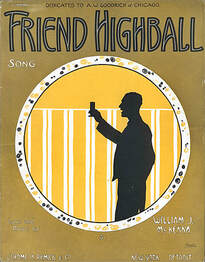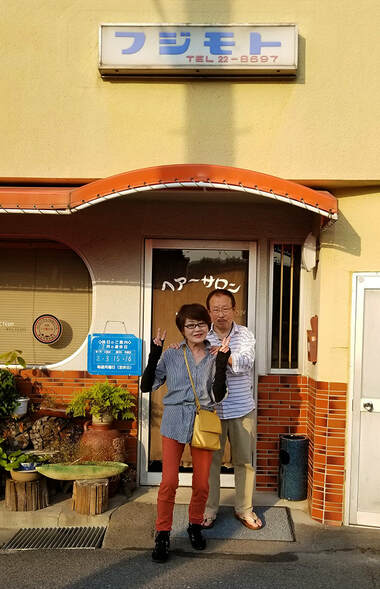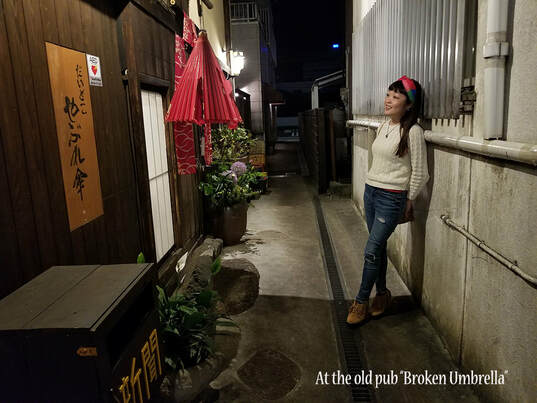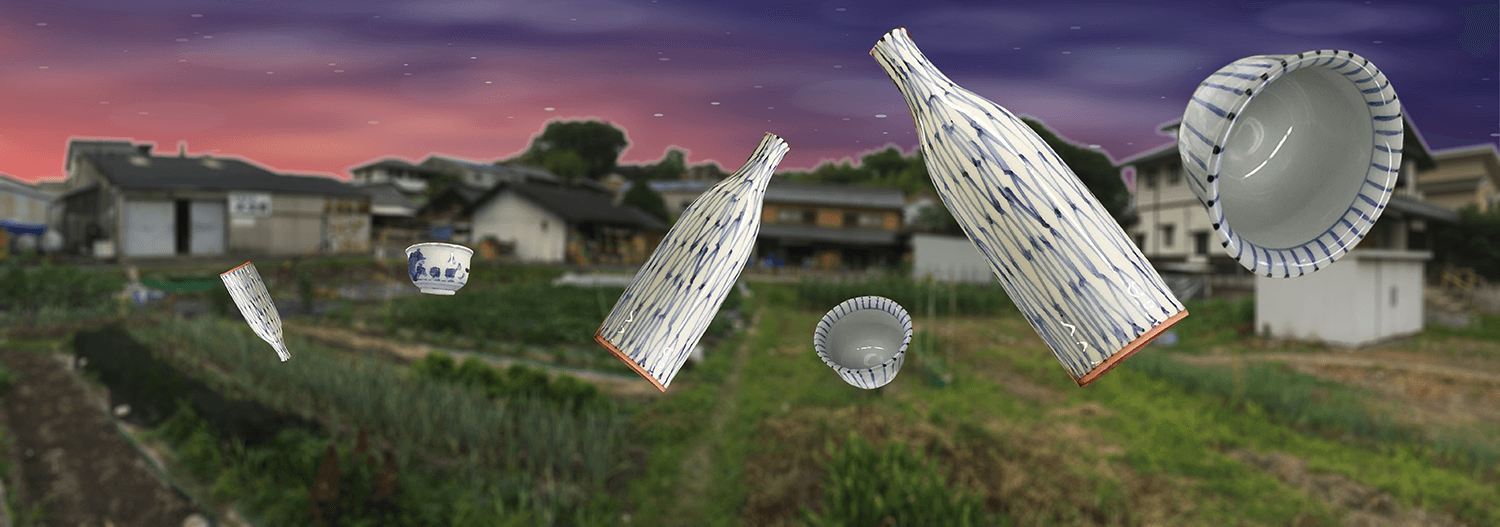All the videos in this hit series
Fumi-chan is on her way to 100.000 views!
a crash course in the Tono dialect by Fumi-chan
"Haa-booru choodaasu!". These single two words may be all you need to master to have a first-class ice-breaker ready for you visit to a local pub in Tajimi.
In standard Japanese you would say "Haibooru kudasai", which translates to "A glass of Highball, please". That's all it takes to get started making friends here. A high-ball, by the way, is a drink consisting of a spirit, especially whisky, and a mixer such as soda. In Tōnō-ben it’s pronounced “haa-booru”. You may have to work on your pronunciation, so we have put together a crash course in Tōnō-ben (ben means dialect) where you will be instructed by Fumi-chan, a tremendously charming and fun local personality here in Takata village, Tajimi.
Fumi-chan is one of those wonderful characters that bring colour to our world. How she does it you will find out in the videos clips we shot for this article, where she will teach you her obscure dialect. So why in the world would you need to learn this strange accent? Three reasons: a) As I mentioned, it’s a great icebreaker when you visit this area. b) you can use it to order a “haa-booru” in Tokyo and make the staff look really silly when they try to make sense of what is coming out of your mouth. But the most important reason of all is that c) the accent gives you a great feeling of the hearts and minds of the local population. Even if you have no intention of learning or using any of these words, Fumi-chan will convey the feel of Tōnō simply by talking in this video. I hope it will inspire you to come and visit and maybe even pop in at Fumi-chan's great, rustic pub - the Yaburegasa - for a haa-booru.
So let's get started with an introduction right away!
So let's get started with an introduction right away!
Fumi-chan has never visited Tokyo, which is only a three hour ride from here if you go by Shinkansen - or the bullet train as it is sometimes called in English. Her world consists of the barbershop where she helps her husband - the equally unique Rikio, and the Yaburegasa, the pub where she works at nights as a waitress. Now and then she goes on a trip with friends to some local resort. And that’s about it. This may also be the reason she is unaffected by the standardization of Japanese, and chatters away happily in a really heavy accent of the local lingo.
"Local" in this sense means Tajimi, our city here in Gifu prefecture in central Japan. Gifu prefecture is located right in the centre of the main Japanese island, Honshuu. In the south-east of Gifu you will find the Tōnō region. Tajimi is one of the cities there, and a couple of kilometers outside the city centre is Takata town, where Fumi-chan and Rikio (seen in the top picture) operates their little barbershop. That is Fumi-chan's world. Fumi-chan and Rikio knows everything that is going on in the neighborhood, as they hear all the gossip in their shop. Everyone is of course speaking in Tōnō-ben here.
In spite of the small world she lives in, or maybe because of this, Fumi-chan has some qualities that are hard to find in this modern world where everybody works so hard to be perfect. She accepts her flaws, which allows her to have a very laid back view of the world. This is mirrored, as well, in the way she speaks. Many consider the local dialect here in Tajimi and the surrounding Tōnō region to be outright ugly. Fumi-chan, on the contrary, excels in her command of the local lingo, and it serves her well as the perfect tool to entertain the customers at the pub. Many of them are young and visitors from Nagoya and other places where the dialect is completely different. Fumi-chan's funny dialect has won her many fans among them. I find the Tōnō-ben to have a local, wonderful colour that is so sorely lacking in standard Japanese. There are in fact foreigners who have risen to popularity on national television because of their command of a local dialect. So let's dive right into Lesson 01 in the next video!
I suspect Fumi-chan never had expected to be a teacher. I am also quite sure nobody has ever taught the Tōnō-dialect to foreigners, which is a very good thing for you if you are curious about traveling off the beaten path in Japan. Each and every word in this little course will serve as an icebreaker for you here in the Tōnō-region. Use any of the words you will learn here, and with a little bit of luck people will buy you drinks and do their very best to make you feel welcome. You can enjoy their hospitality when you visit Fumi-chan’s workplace, the Daidokoro Yaburegasa. Yaburegasa means “broken umbrella”, if you wondered. It’s a very cosy and immensely popular place, where Fumi-chan is somewhat of a local star.
Short guide for the beginner Tōnō-ben learner
I am not going to overwhelm you with grammar and that sort of thing, but here is a few guidelines to help you enjoy the videos:
I have provided English subtitles so anybody can watch and enjoy Fumi-chan’s personality. No need to study if you don’t want to.
The dialect words are highlighted in yellow.
Quick pronounciation guide
Word list
Here is a quick list of the words we introduced:
Short guide for the beginner Tōnō-ben learner
I am not going to overwhelm you with grammar and that sort of thing, but here is a few guidelines to help you enjoy the videos:
I have provided English subtitles so anybody can watch and enjoy Fumi-chan’s personality. No need to study if you don’t want to.
The dialect words are highlighted in yellow.
Quick pronounciation guide
- “i” is pronounced like the “E” in England.
- “O” is pronounced like the “o” in London.
- “E” is pronounced like the “ea” in weather. “A” is pronounced like “u” in sun.
Word list
Here is a quick list of the words we introduced:
- Yattokame-ya-nee (Long time no see). It can be abbreviated to Yattokame. In standard Japanese this is ohisashiburi desu ne.
- Iryaasu? (to be, posed as a question). This is imasu ka in standard Japanese. For example, “are you home?” would be Uchi (house) ni iryaasu?
- Taagataaga (not perfect, wanting). Fumi-chan describes herself as a taagaataagaa kind-of-person, that is one that is not trying to be perfect, so in a sense this means natural here.
More videos
We have a new series of videos on this page. Please click here to register on our mailing list for updates.
Good luck with your studies, and take a look around the site to find out more about how to travel to Tajimi, what to do, what life is like here and more.



